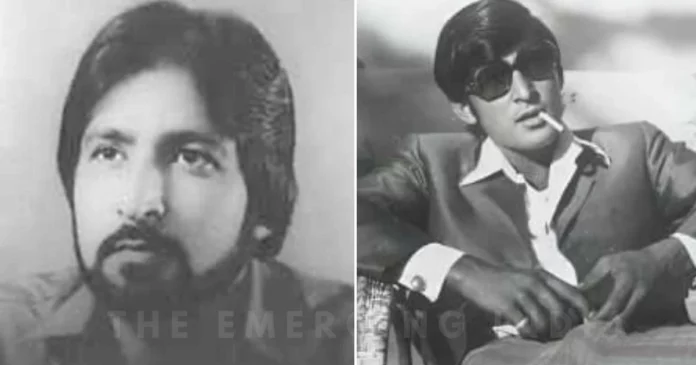
Ravindra Kaushik, a remarkable Indian undercover operative, stood as a shining figure in the world of espionage. His daring work involved transmitting crucial information from within Pakistan, a feat that led to his renowned moniker ‘Black Tiger’. However, fate dealt him a harsh hand, imprisoning him for the better part of his final 16 years. Amidst the confines of Central Jail Mianwali in Pakistan, he took pen to paper in a heartfelt letter to his family, expressing…
“Kya Bharat jaise bade desh ke liye qurbani dene waalon ko yahi milta hai?” (Is this what lies in store for people who sacrifice their lives for a big country like India?)
The well-known Bollywood film “Ek Tha Tiger” was reportedly believed by Ravindra Kaushik’s family to draw inspiration from his life story. They sought recognition for Ravindra Kaushik in the movie’s credits. However, director Kabir Khan refuted their assertion. Notably, the film stars the Bollywood megastar Salman Khan.
“Romeo Akbar Walter,” a 2019 Indian film written and directed by Robbie Grewal, is said to be loosely inspired by Ravindra Kaushik’s endeavours in Pakistan. In the movie, John Abraham takes on the role of a character resembling Ravindra Kaushik. Interestingly, the character’s name in the film is Rehamatullah Khan. This cinematic adaptation provides a glimpse into the world of covert operations and espionage.
Who is Ravindra Kaushik?
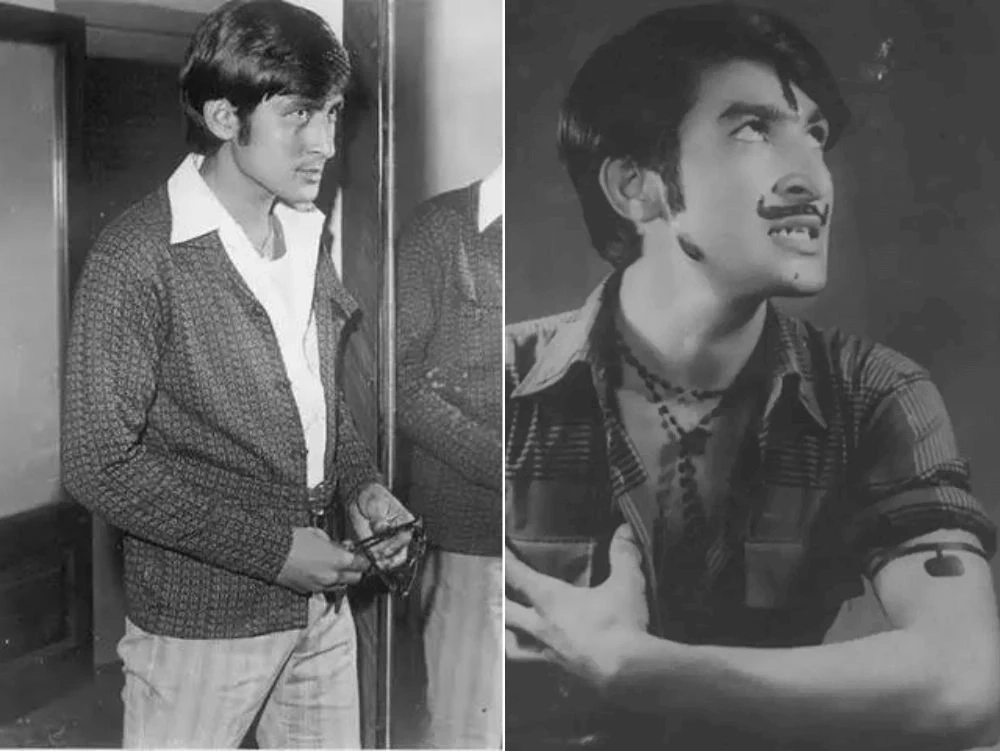
Ravindra Kaushik was born on 11 April 1952, hailing from Sri Ganganagar, Rajasthan. He was born into a Brahmin family, with his father, J. M. Kaushik, serving as an officer in the Indian Air Force. Tragically, his mother Amla Devi left this world in 2006. Ravindra was known for his academic prowess and is recalled as a diligent student. His educational journey led him to graduate from S. D. Bihani P. G. College in Sri Ganganagar.
Having accomplished his B.Com degree, Ravindra Kaushik exhibited a strong penchant for mimicry and dramatics. At the age of 21, he showcased his talents on a grand stage, participating in a national theatrical festival held in Lucknow. His college years were also marked by his active engagement in theatre acting. It was during this time that destiny intervened, and he was enlisted by the Research and Analysis Wing (R&AW).
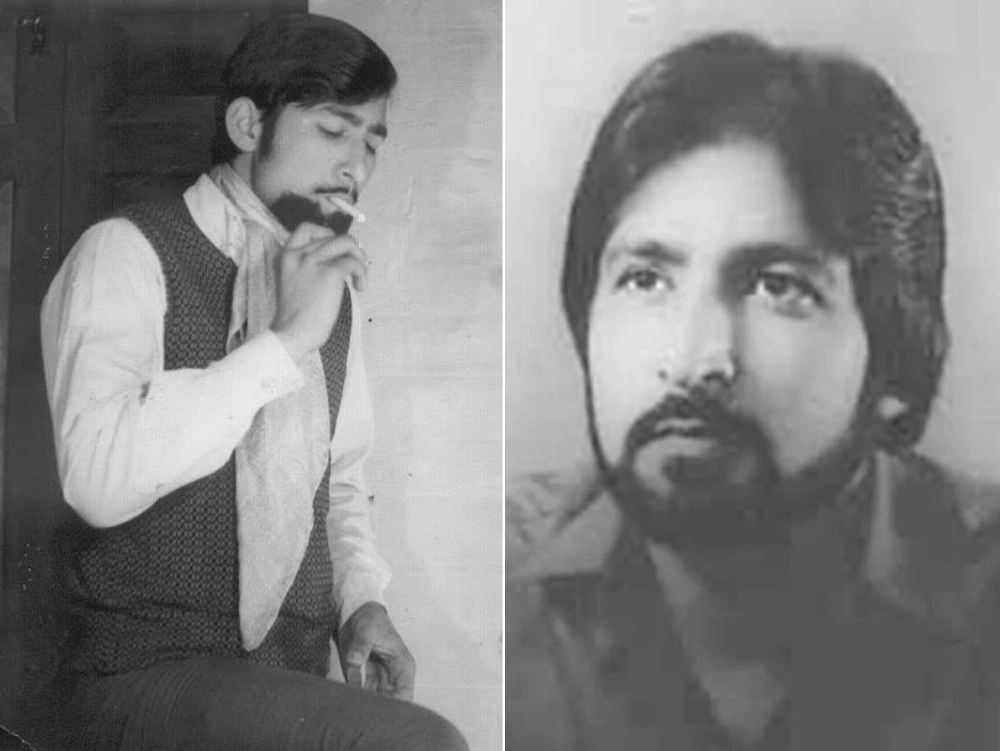
Recollections from Rajeshwarnath Kaushik, Ravindra’s younger brother, bring to light…
“It was probably his mono-act in college, in which he played an Indian Army officer who refused to divulge information to China, that caught the attention of intelligence officers”
How did Ravindra Kaushik get recruited in R&AW?
Following the successful completion of his BCom degree in 1973, Ravindra Kaushik informed his father that he was embarking on a new job opportunity in Delhi. However, in actuality, he was on the verge of commencing a comprehensive two-year training period with the Research and Analysis Wing (RAW). This covert turn of events marked the beginning of his journey into the world of intelligence and espionage.
How Ravindra Kaushik became a resident agent?
Ravindra already possessed fluency in Punjabi, a linguistic advantage that he brought to his training. Throughout this period, RAW officials diligently educated him in Urdu and acquainted him with Islamic scriptures. Moreover, they furnished him with comprehensive lessons on Pakistan’s geographical intricacies, facilitating his seamless immersion into the role of a “resident agent.”
In a bid to authentically blend into the religious community’s practices in Pakistan, he is said to have undergone circumcision, a common rite among males in that particular religious context. This marked his dedication to his undercover mission and his commitment to maintaining his cover as a local resident.
Embarking on his mission, he made his way to Pakistan, adopting the alias ‘Nabi Ahmed Shakir’ and adopting the identity of a resident of Islamabad. By 1975, all his official records from India had been meticulously erased, leaving no trace. During his stay, he pursued and successfully completed an LLB degree from Karachi University.
His journey took an unexpected turn when he joined the Pakistani Army as a commissioned officer, becoming part of the Military Accounts Department. His dedication and capabilities led to his subsequent promotion to the esteemed rank of Major within the military hierarchy.
Contributions of India’s greatest spy
During the span of 1979 to 1983, Ravindra adeptly transmitted classified information to Indian defence authorities. His strategic placement within Pakistan’s systems allowed him to gain a position of respect and influence. Through his covert actions, he provided his homeland with a crucial edge during a period marked by escalating tensions and mounting conflicts. His invaluable service significantly bolstered the nation’s capabilities and strategic insights.
Ravindra Kaushik wife
In a captivating turn of events, Ravindra Kaushik forged a unique love story in Pakistan by marrying a local woman named Amanat. Amanat, hailing from a family of a tailor in an Army unit, became an integral part of his life. The two individuals found a deep connection and affection for one another, culminating in a bond that transcended boundaries.
ravindra kaushik wife Amanat’s photos
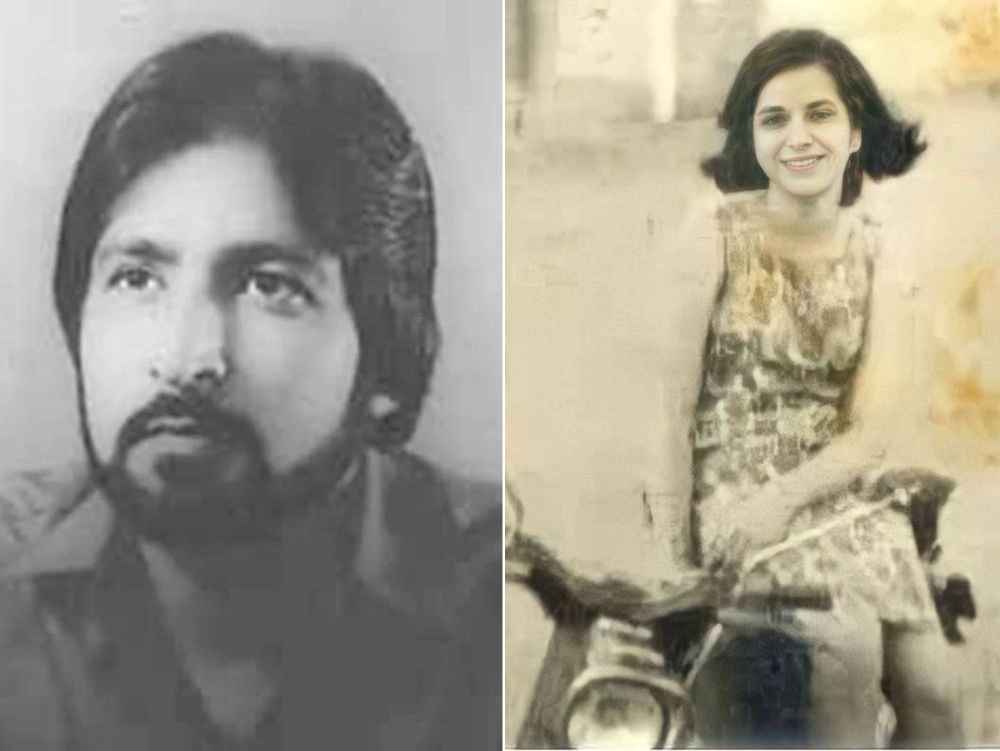
Their love story unfolded under the veil of secrecy, as it’s believed that Amanat remained unaware of Ravindra’s true identity. Their union bore fruit in the form of a son named Areeb Ahmed Khan, marking the tangible manifestation of their shared emotions and commitment.
Ravindra Kaushik was tortured for two years, in jail, and imprisoned for 16 years
In September 1983, after an impressive span of eight years operating covertly as a spy, Ravindra’s well-guarded identity was suddenly exposed, leading to a catastrophic unravelling of his carefully built life.
During this critical juncture, another undercover agent by the name of Inyat Masiha was dispatched by RAW to establish contact with Ravindra. However, during a subsequent interrogation by Pakistani authorities, Inayat inadvertently divulged the true extent of Ravindra’s espionage activities, opening a window into his clandestine operations. This disclosure dealt a severe blow to Ravindra’s covert existence and initiated a series of events that would forever alter his fate.

Instructed by Pakistani intelligence officials, Masiha’s mission led him to rendezvous with Ravindra Kaushik in a park. At that point in time, Ravindra was 29 years old, and it was during this meeting that his life took a drastic turn. He was apprehended in the park on allegations of espionage, marking the beginning of a grim chapter in his story.
Following his arrest, reports indicate that he was subjected to severe torture in an interrogation centre situated in Sialkot over the subsequent two years. The harrowing ordeal he endured during this period is a testament to the challenges and dangers faced by individuals engaged in covert activities of this nature.
The year 1985 witnessed the Pakistani Supreme Court delivering a death sentence to Ravindra Kaushik. However, this severe punishment was eventually commuted to a life imprisonment term. Throughout his confinement, he was shuttled between several prisons, including Sialkot, Mianwali, and Kot Lakhpat, where he endured the challenges of incarceration.
Despite the adversities he faced, Ravindra demonstrated remarkable resilience by secretly penning at least six letters to his family. These letters conveyed the traumatic experiences he endured while serving his sentence, providing a glimpse into the hardships he confronted.
In the waning moments of his life, which he lost to pulmonary tuberculosis and heart disease in November 2001, Ravindra left a poignant message, composed just three days prior to his passing. This poignant message serves as a testament to the indomitable spirit he maintained even in the face of grave adversity.
“Had I been an American, I would have been out of this jail in three days”
On November 21, 2001, Ravindra Kaushik passed away. He was 49 at the time. At the New Central Multan Jail, he was laid to rest.
‘We don’t want money, we want recognition’
The news of Ravindra’s passing was conveyed to his family in Jaipur through a letter dispatched by the Superintendent of Kot Lakhpat. Tragically, the weight of this devastating news proved too much for his father, a retired Indian Air Force officer, who succumbed to heart failure upon learning of his son’s demise.
In a poignant account by The Telegraph, it was revealed that Ravindra’s brother Rajeshwarnath and mother Amladevi had fervently appealed to the Indian government in numerous letters, seeking assistance for Ravindra’s release. Regrettably, their pleas remained unanswered, and their efforts to garner support from the Foreign Ministry were met with a disheartening silence. The depths of their struggle and the echoes of their unanswered pleas paint a sombre picture of their ordeal.
“His case has been taken up with Pakistan”
His mother Amladevi penned the following letter to former Prime Minister Atal Bihari Vajpayee:
Another read,“Had he not been exposed, Kaushik would have been a senior army officer of the Pakistan government by now and (continued in) the coming years (serving India secretly).”
“The government never…sent medicines on time when Kaushik was dying, though a spy sitting in the right place…saves the life of at least 20,000 soldiers of his nation.”
No official thanks were ever given to Ravindra for his sacrifices. Ravindra Kaushik was absent from his own country for 26 years. Rajeshwarnath, his brother, said:
“What we want from the government is recognition of the contribution by agents as they are the real foundation of the security system”
Rajeshwarnath Kaushik stated that till Amladevi’s passing in 2006, the family earned Rs 500 per month at first, then Rs 2,000 per month. He stated:
“He will always remain important for me. But for the country, he was just another agent”
Ravindra Kaushik Movie (Biopic)
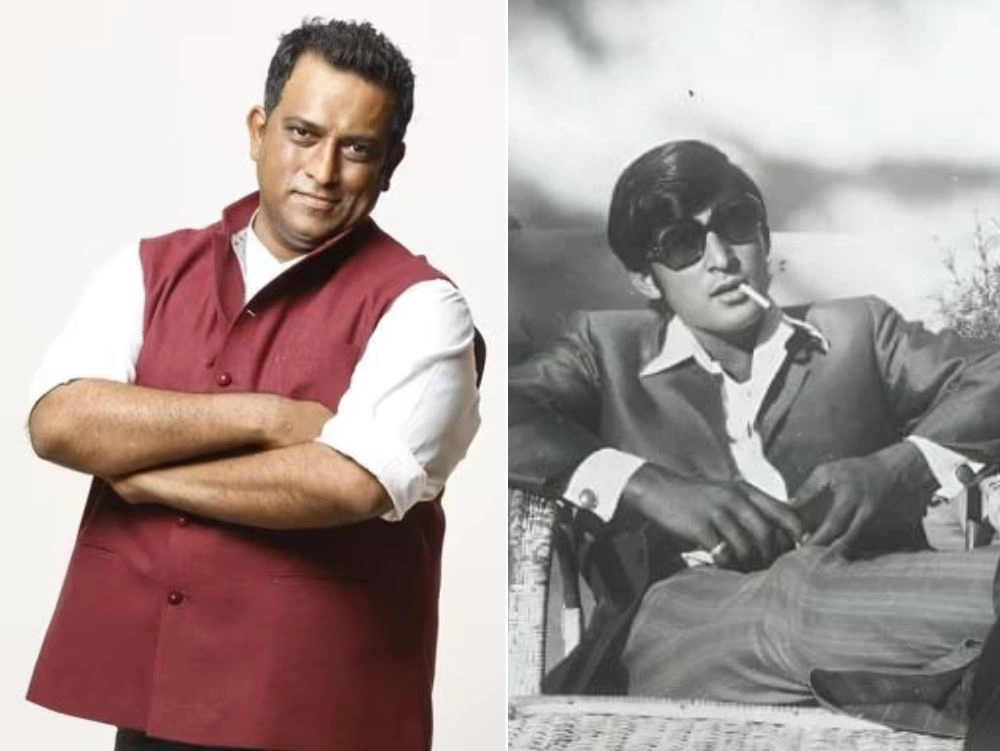
Shashi Vashisth, the sister of Ravindra Kaushik, responded when questioned about how the family feels about the planned biopic:
“Many people have approached us to make a film, but it never felt right because it is very personal for us. When Raj Kumar Gupta approached us, we felt confident since…he is a sensible filmmaker, and the right person to tell my brother’s story for the first time.”
Vikram Vashisth, her son and Ravindra’s nephew, said in 2015 that there were parallels between his late uncle’s life and the plot of the Salman Khan film Ek Tha Tiger. They asked the movie’s producers for credit.
Filmmaker Raj Kumar Gupta was quoted saying,
“Shri Ravinder Kaushik was India’s greatest spy. [His] is an emotional and remarkable story. I am humbled and thankful to his family who trusted me and gave me the rights to turn this unbelievable story into a film”
Anurag Basu is a director who has directed films like Life in a… The Black Tiger, a biopic about Indian spy Ravindra Kaushik, has been touted as Metro, Gangster, Barfi!’s next film project.
Family members of Ravindra have given their approval and support to the biography. Producers Basu, R Vivek, Asvin Srivatsangam, and Divay Dhamija are responsible for The Black Tiger. In a statement, Anurag Basu stated:
“Ravindra Kaushik’s story is that of courage and valour. At the young age of 20 years, he played a pivotal role in many national and international security matters of the ’70s and ’80s that went on to define India’s as well as South Asia’s character. So much of our history is either hidden or forgotten. We ought to recognise and learn about this unsung hero”
ravindra kaushik son

The sole surviving family member, Amanat, was compelled to leave Pakistan due to evident reasons.
Furthermore, it’s important to clarify that Ravindra fathered a son, not a daughter. The name of his son was Areeb Ahmed Khan, who unfortunately passed away a few years ago.
What are your thoughts on the untimely demise of the extraordinary undercover snoop? Please tell us in the comments.
